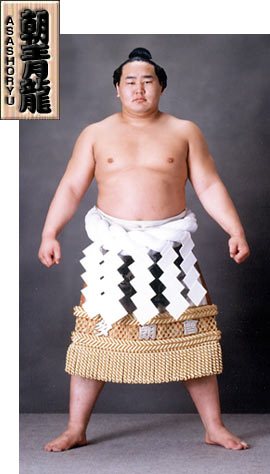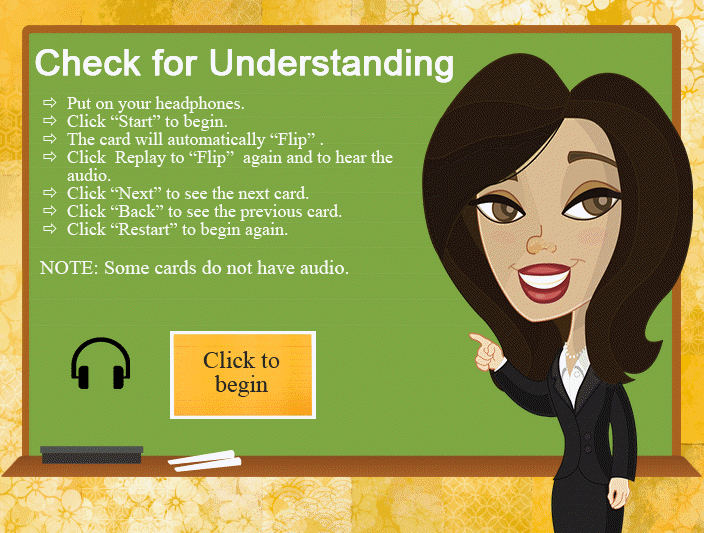![]() A Sumo Wrestler : Asashoryu Akinori
A Sumo Wrestler : Asashoryu Akinori

あさしょりゅう あきのり(朝書流明憲)
あさしょりゅう あきのりは、1980ねん9がつ27にちに、モンゴルのしゅと、ウランバートル(Ulaanbaatar, the capital of Mongolia)で、Dolgorsuren Dagbadorjとして(as)、うまれました(was born)。すもうで、いちばんつよい、よこづなのランク(rank)についた、はじめての(the first)モンゴルのりきし(Rikishi-sumo wrestler)です。
あさしょりゅうは、148キロで、ほかの(other)よこずなより、すこしちいさいです。1999ねんに、デビュー(debut)してから、いぜんにないはやさ(at the speed which hasn’t been observed in the past)で、チャンピオンシップをかくとくしました(gained)。2003ねん1がつ30にちに、よこずなのランクが、あたえられました(was given)。いま(2006ねん)、げんえき(active)のよこずなとしてかつやくしている(being around)のは、かれひとりです。
(The same story with Kanji) 朝書流明憲は、1980年9月27日に、モンゴルの首都、ウランバートルで、Dolgorsuren Dagbadorjとして、生まれました。相撲で一番強い横綱のランクについた、初めてのモンゴルの力士です。
朝書流は、148キロで、ほかの横綱より、少し小さいです。1999年に、デビューしてから、以前にない速さで、チャンピオンシップを獲得しました。2003年1月30日に、横綱のランクが与えられました。いま(2006年)、現役の横綱として活躍しているのは、彼一人です。
You will be translating this passage in one of the assignment for this section, but remember to use natural English, and remember that it is normal for some phrasing differences in the translations.![]() Listening and Speaking Practice
Listening and Speaking Practice
![]() A Sumo Wrestler : Asashoryu Akinori
A Sumo Wrestler : Asashoryu Akinori

あさしょりゅう あきのり(朝書流明憲)
あさしょりゅう あきのりは、1980ねん9がつ27にちに、モンゴルのしゅと、ウランバートル(Ulaanbaatar, the capital of Mongolia)で、Dolgorsuren Dagbadorjとして(as)、うまれました(was born)。すもうで、いちばんつよい、よこづなのランク(rank)についた、はじめての(the first)モンゴルのりきし(Rikishi-sumo wrestler)です。
あさしょりゅうは、148キロで、ほかの(other)よこずなより、すこしちいさいです。1999ねんに、デビュー(debut)してから、いぜんにないはやさ(at the speed which hasn’t been observed in the past)で、チャンピオンシップをかくとくしました(gained)。2003ねん1がつ30にちに、よこずなのランクが、あたえられました(was given)。いま(2006ねん)、げんえき(active)のよこずなとしてかつやくしている(being around)のは、かれひとりです。
(The same story with Kanji) 朝書流明憲は、1980年9月27日に、モンゴルの首都、ウランバートルで、Dolgorsuren Dagbadorjとして、生まれました。相撲で一番強い横綱のランクについた、初めてのモンゴルの力士です。
朝書流は、148キロで、ほかの横綱より、少し小さいです。1999年に、デビューしてから、以前にない速さで、チャンピオンシップを獲得しました。2003年1月30日に、横綱のランクが与えられました。いま(2006年)、現役の横綱として活躍しているのは、彼一人です。
You will be translating this passage in one of the assignment for this section, but remember to use natural English, and remember that it is normal for some phrasing differences in the translations.
Listen to the following recordings of the paragraphs below that you already read about “Asashoryu Akinori” several times. After that, as a graded assignment, you will prepare a recording of these paragraphs.
Paragraph 1
Paragraph 2
![]() Practice - Flashcards
Practice - Flashcards
You should be remembering to repeat Japanese as much as you can when you hear Japanese in the course and it is also imperative that you spend time outside of class studying your Japanese.
Before we get going very far, see how well you're doing on this Unit's vocabulary. The following flash card activity will help you learn your vocabulary. See if you know what each word or phrase means. Click on "Begin" to hear the words. Go to a new word by click on "Next" in the controls at the bottom.
Click Flashcards or Click to start below.
Here is a print version of this actvity. You will still need to use the online version to hear any audio.
![]() Graded Assignments
Graded Assignments
Please return to the Section 3 Tasks & Assignments folder to complete the graded assignments for Section3, Part A.


